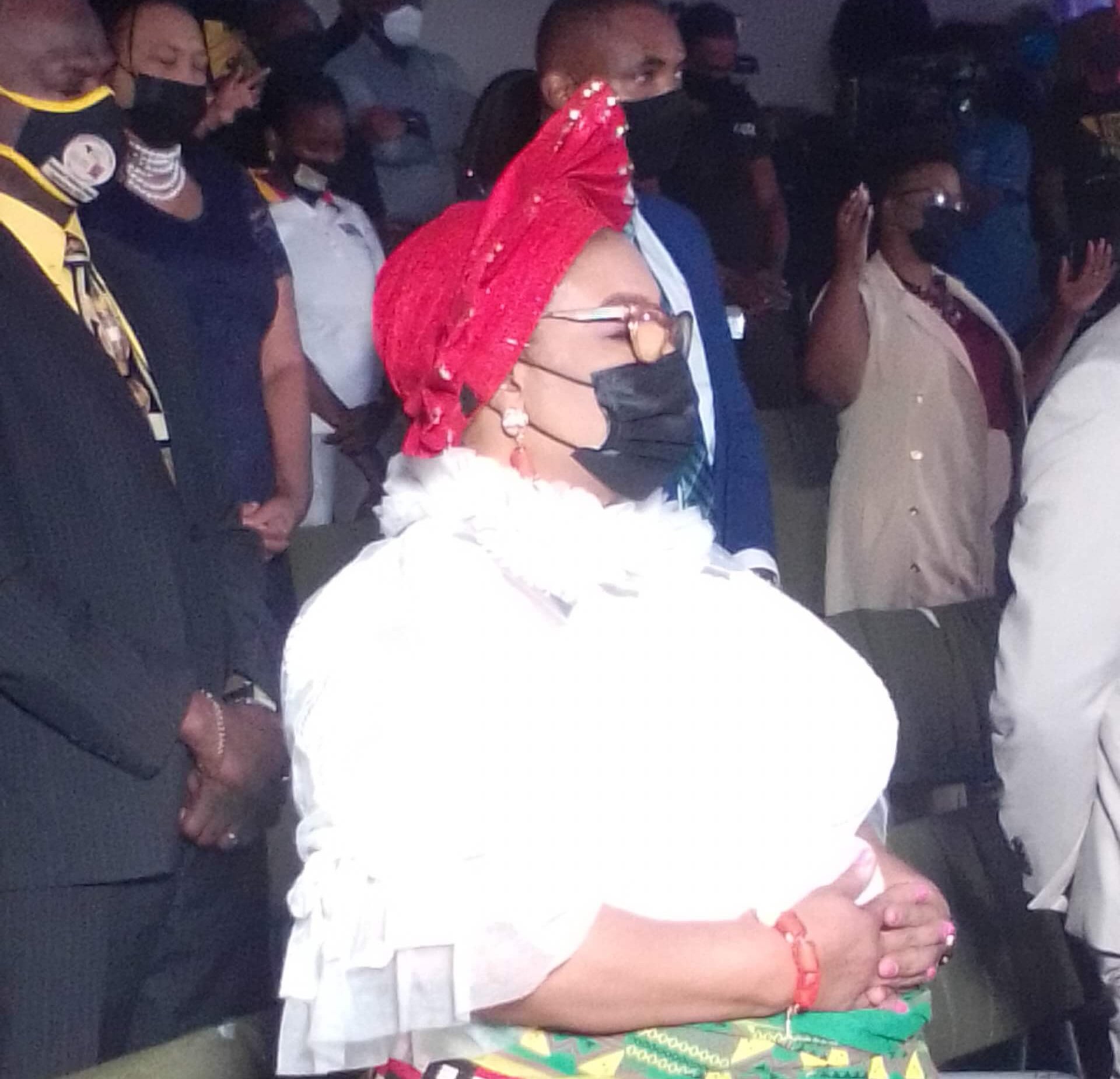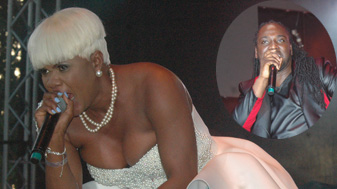How Artificial Intelligence Can Help Dancehall And Reggae Music
May 26, 2021 | Donovan Watkis |
Currently, artificial intelligence makes it easier to find and listen to your favorite songs. Many moons ago Reggae and Dancehall music fans were only able to legally listen to music curated by a radio station, a party or mixtape DJ, or create their own playlists from a private collection. Like the rest of the world they had to purchase expensive 12-inch records, then later cassettes, then CDs, then there was the downloads era that missed everyone in Jamaica because none of the apps were available in the region. With the advent of streaming, AI technology has made it easier for listeners to consume more music for less purchasing effort and dollars. An Amazon Alexa device costs less than USD$40 and a monthly subscription of your preferred music service allows you to listen to all the music in the world. Although simpler, this by itself creates a problem for music consumers because humans have preferences and we would rather not go search for the music we like. We enjoy things in sequence and order.
To solve that problem technology companies are developing algorithms to predict our taste based on our music listening patterns. You can tell Alexa, “play reggae music” and she will play reggae music in cue based on your personal history and predict what you want to hear next.
The current top Reggae songs on Amazon Music are Bob Marley’s Easy Skanking and Stick Figure’s World On Fire but if I say “Alexa, play my reggae music, she will play Damian Marley, Nas and Lil Wayne’s My Generation based on my music listening patterns.
Alexa and other smart music apps won’t only analyze your music listening history but are able to understand the kind of music you like.
With that personalization comes an enjoyable experience. Entreprenuer.com states that “At the very heart of the personalization of music in the future, lies the way individual listeners will experience their music”.
It added that, “Through technologies like virtual reality, listeners will not just “listen” to music, but also virtually see their favorite musicians performing exclusively for them. Through wearable neuro-electrical stimulators, listeners will “feel” the music in their bones and muscles and regions of the brain. They may also be able to feel the sentiments and emotions of the artist through these stimulations”.
On the other hand, Spotify has all but removed the human element in personalizing the music for users. According to analyticsindiamag.com, “Where other music streaming services make use of paid playlists created by individuals and other communities, Spotify, relies on its algorithm in addition to free human-created playlists”.
To achieve this Spotify uses an AI technology called BaRTs (Bandits For Recommendations as Treatment). This prevents users from going on a wild goose chase to search for suitable playlists. The technology looks for artists that are popular in your area who you haven’t yet discovered and recommends them to you.
This means that musicians in Jamaica are being recommended to visitors and tourists as soon as they step off the plane. This opens up local artist to potential audiences they wouldn’t have unless they performed on a concert. Unlike passively listening to reggae music on the beach or at the bar the algorithm tells you right on your phone who the artist is and recommends other music from that local artists.
The way this is done cannot be competed against by any single human being creating music. The algorithm used is able to process more information and return quicker results than any record store operator, radio or party DJ, or paid playlist curator.
All the other major music and music streaming companies have invested heavily in algorithms that enhance their artificial intelligence ability.
In 2018, Warner Music Group acquired tech start-up Sadatone for the sole purpose of discovering future stars using algorithms. Sadatone developed predictable technology that combines social, streaming, and touring data to help identify unsigned talent according to Billboard.com.
In the same year, Apple also acquired music analytics company Asaii, to help them boost their A&R.
As more entrepreneurs, researchers and musicians find the need to integrate more AI into the future of music there may no longer exist a need for A&R and industry connections to get Reggae music and artists a global reach. Additionally, simple conversations online may lead record labels toward the next big thing in reggae music.
Brian Whitman, The CFO of Echo Nest, a company acquired by Spotify in 2014 wrote that “Every word uttered on the internet about music goes through our systems that look for descriptive terms, nouns, phrases, and other texts”.
That’s one side of how AI is changing the way music is consumed. The other side is the creation of music and music-related content. Currently, many creators either rely on fair use laws or opt not to use any music at all in their content for fear of a copyright flag on their YouTube account. For those of us who create, we know music makes everything better and now, so does AI.
The app AIVA creates royalty-free music based on the mood you desire by using a deep learning algorithm. For digital content creators, this gives the feel of the music you desire without paying royalties on content uploaded to YouTube or social media.
The Sixth Band Member
Artificial intelligence is also now the sixth member of the band and is already being used as a cognitive collaborator to prompt the making of music.
IBM Watson® which is an artificially intelligent machine used for breakthrough innovations in healthcare, education, fashion, weather, and advertising is now the additional band member for musical innovators.
Dubbed Watson Beat AI, the machine was originally used as a question and answer computing system but can now imitate human senses to ‘see’, ‘hear’, ‘read’, ‘talk’, ‘taste’, ‘interpret’, ‘learn’ and ‘recommend’ music.
Forbes writer Bernard Marr reported that “UK based Grammy-nominated producer Alex da Kid used IBM’s supercomputer “IBM Watson” to analyze five years’ of hit songs, as well as cultural data from films, social media, and online articles to figure out a theme for an AI-generated song that fans would enjoy. The final song, “Not Easy,” reached number four on the iTunes Hot Tracks chart within 48 hours after its release”.
The same technology was used by Brooklyn R&B band Phony PPL. They added simple sounds like “Mary had a little lamb” and the algorithm recommended and reproduced a new track with an infectious beat. This is unlike Spotify and Alexa that curate songs based on what you like. IBM Watson makes a new song. This artificial intelligence is the game-changer because it adds emotion to the music.
Historically, Dancehall music has had problems with sampling and clearing records according to Mr. Vegas recently in an interview. Imagine he is now able to input an original sample of a hit record and then artificial intelligence turns out a track with a similar mood but royalty-free in any genre he chooses.
To the naked eye, it may seem like AI is replacing creativity but it is indeed adding to the creative process and inspiring creative intelligence. Band member of Phony PPL confirms, “Every artists, musician will tell you writer’s block is real..so I think Watson is a good platform for when you in that rut like ‘I don’t know what to write’, you can just play a couple notes and it gives you some kind of inspiration and it go a whole other way than you may have thought”.
Another band member said, “its not like its gonna make a song for you or make it great if it wasn’t great in the first place but it will definitely give you more seasoning”.
Other artists, like Duran Duran’s Simon Le Bon, are using AI for music videos. Duran told Billboard.com he is using an AI named Huxley. “Huxley is a creative A.I. that’s been developed by a bunch of people called Nested Minds. Really at the heart of all this is neuroscience. The way the human mind works. And what they’ve done with Huxley is they’ve kind of made an approximation of the way that people think thoughts are created inside the human brain”. The way Huxley works is they input the lyrics and images of the artists and it dreams of a new reality to make a music video. Explains Le Bon loosely.
Coupled and tripled with other technology such as Landr that can be used to mix and master a track with high quality for less than ten dollars these are game-changers for music creatives in reggae and dancehall.
Bay C formerly of Dancehall hit group T.O.K agrees but says there are two sides to music; One being the sound and the other the feeling.
“In the sound area, I think it will be quite possible that AI will be used for a lot of commercial projects as a quick solution such as for advertisements and movie scores. On the feeling side that is where reggae music is built. The unorthodox approach that Jamaicans use in our creativity. I don’t think that can be modeled because it isn’t predictable or explainable. It’s just a feeling”.
Whatever the future of reggae and dancehall music entails, there will be differences in how it is made and how it will be consumed.
There are already speculations by music experts on whether the future will see music totally created by AI. If IBM has their way this will be a reality sooner than later. Richard Daskas of IBM said he would like to turn what some now call a demo record into a fully composed hit song using AI.
“We want to analyze audio instead of just submitting data, so you can sing into it, you can play a guitar and then it can create a whole composition from audio files as well”.
Music tech veteran Prashan Agarwal, CEO of India-based streaming service Gaana said in a comment on entrepreneur.com, “not very far in the future, AI will create its own music using ‘Generative Adversarial Networks’ or GANs”.
After raising $115M in 2018, the company issued a statement saying it plans to use this new capital to develop artificial intelligence to create more personalized services and features for listeners.
Lenford Salmon, cultural engineer and advisor to the Minister of Culture in Jamaica said, “Artificial intelligence won’t just affect reggae music, it will affect all music in Jamaica, I believe it will be some time before technology fully replaces human artistic creativity. But I do believe the day will come.”
He further recalled, “There was a time when calligraphy could only be achieved by artistic geniuses with individual craftsmanship. Now that’s gone. The average word processing software gives you scores of fonts, and more sophisticated graphic software gives far more than was thought possible even a few years ago. Music creation could have a similar fate. Look how widely used auto-tune has become”.
Going by Daskas, Salmon and Agarwal’s
Creative focused Reggae and Dancehall artists should not fear AI however, instead they should see it as a willing and able collaborator.
Tech expert Bernard Marr in assuring artists of an integrated future says “AI technology is transforming the music industry in a myriad of ways, but creatives shouldn’t be worried about losing their jobs and being replaced by computers. We’re still a long way from artificial intelligence being able to create hit songs on their own.
But as tools develop and the music industry learns how to use AI as a supplement to human creativity, our world will continue to sound sweeter and sweeter every year”.
If the future of music is technology and technology is focused on making smarter decisions, while responding quicker than any human being to achieve better results, then the future of reggae and dancehall music will adapt to these technologies from creation to distribution to consumption.
The verdict is still out on what the mental and emotional impact will be on the natural human mind, body, and soul that consume music created, recommended and filtered through artificial intelligence.




